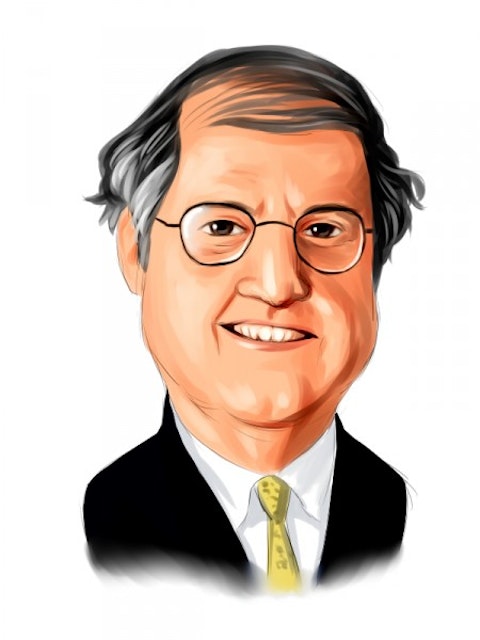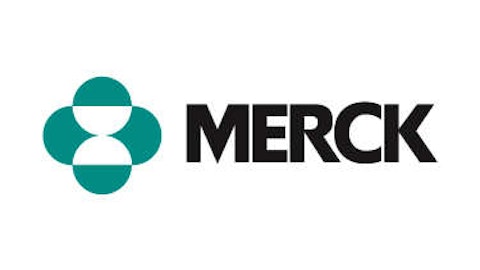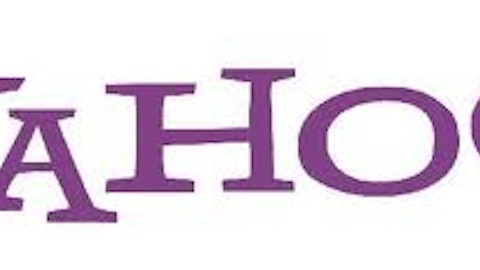Spinoffs are usually able to unlock some value in a company– usually a sizable value. As such, when a company announces a spin off, investors of all sorts clamor to get a piece of the action, hedge funds included. Event-driven hedge funds, in particular, live for this sort of thing.
Abbott Laboratories (ABT), for example, announced a planned split-up of the company last October. The company explained that it would spin off its research based pharmaceuticals business, which has estimated sales of about $18 billion, to its shareholders by the end of 2012. The spinoff is expected to enable the investors to better focus on the growth potential of each entity, leading to higher valuations of each firm.
As a result, by the end of December 2011, 40 hedge funds of the 350+ hedge funds we track listed Abbott in their 13F portfolios, up from 37 hedge funds at the end of September. In total, they had nearly $2 billion invested in this stock, which has a market cap of $96 billion. Ric Dillon’s Diamond Hill Capital had over $200 million invested in Abbott, while Bill Miller’s Legg Mason Capital Management also invested $140 million in this stock.
But, the spinoff is not the only reason why hedge funds like Abbott. The company has many other strengths.
Abbott has a diversified portfolio of products. It offers a wide variety of products in pharmaceuticals, nutritionals, diagnostics, and medical devices, which lends it a certain amount of diversification – the weaknesses in some of its product lines will be offset by the growth in others.
We believe the company will continue to gain market shares in the US market as well as expand in emerging markets. Over the past year, Abbott also developed many new products across its nutritionals, pharmaceuticals, vascular and vision care operations. It also plans to launch 20 more new products in its diagnostic segment this year. These launches will definitely boost the company’s sales and more than offset the negative impacts of the US healthcare reform and the soft European economy. Analysts expect Abbott to make $5.03 per share in 2012 and $5.37 per share in 2013, compared with $4.66 per share in 2011. Over the long term, the company’s earnings are estimated to grow at about 7.5% per year.
Abbott is also a dividend growth stock. Its current dividend yield is about 3.33%, versus 2% for the 10-year Treasury bonds. By offering decent dividends, Abbott is able to deliver attractive returns to its shareholders. Moreover, the company has the ability to maintain or increase its dividend payments. For the past 39 years, Abbott has been continuously raising its dividend payouts. Last year, it increased its quarterly dividend by 9% from $0.44 per share to $0.48 per share. We believe the company will continue to do so in the future. As we mentioned earlier, Abbott’s earnings are expected to grow at 7.5% annually, which will support the company’s dividend growth in the next few years. Even if Abbott fails to meet its growth expectations, its relatively low payout ratio of 62% still indicates that the company could raise dividends.
Abbott also has attractive valuation levels. Currently, the stock is trading at $61.18 per share, so its forward P/E ratio is about 12.16, a discount to the industry average of 17.48. Other major players in the US pharmaceutical industry include Bristol-Myers Squibb Company (BMY), Johnson & Johnson (JNJ), Eli Lilly & Co (LLY), Merck & Co Inc (MRK), and Pfizer Inc (PFE). These companies all have attractive dividend yields of above 3%. The main statistics of these companies are presented in the table below.
| Ticker | Company | Dividend Yield | Forward P/E | Earnings growth |
| ABT | Abbott Laboratories | 3.33% | 12.18 | 7.51% |
| BMY | Bristol-Myers Squibb Company | 4.03% | 17.29 | 1.67% |
| JNJ | Johnson & Johnson | 3.46% | 12.98 | 5.86% |
| LLY | Eli Lilly & Co. | 4.87% | 12.74 | -8.68% |
| MRK | Merck & Co. Inc. | 4.37% | 10.11 | 3.40% |
| PFE | Pfizer Inc. | 3.89% | 10.02 | 3.76% |
Looking at these numbers, Abbott is priced a little higher compared to its peers but it also has the highest earnings growth of the lot. Between those factors and the company’s impending spinoff, we think Abbott is a buy.
Bristol-Myers looks overvalued compared with its peers, so we do not think it is a good time to purchase the stock right now. On the other hand, Merck and Pfizer have the lowest forward P/E ratios. They also have stable earnings growth and attractive dividend yields. Hedge funds like them too. Ric Dillon, for instance, is bullish about both Merck and Pfizer. Diamond Hill Capital had $207 million invested in Pfizer and another $175 million invested in Merck at the end of the fourth quarter.
Abbott and Johnson & Johnson also look attractive. Though their forward P/E ratios are slightly higher than that of Merck or Pfizer, they also have higher growth expectations. We think they are better investments than Eli Lilly, which has similar forward P/E ratio but deteriorating earnings.






